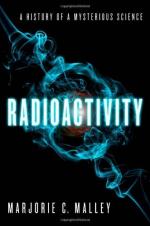|
This section contains 108 words (approx. 1 page at 300 words per page) |
Radioactive decay is the process by which an atomic nucleus undergoes a spontaneous change, emitting an alpha particle or beta particle and/or a gamma ray. Radioactive decay is a natural process that takes place in the air, water, and soil at all times. The decay of isotopes such as uranium-238, radium-226, radon-222, potassium-40, and carbon-14 produce radiation that poses an unavoidable and, probably, minimal hazard to human health. Scientists have also learned how to convert stable isotopes to radioactive forms. The radioactive decay of these isotopes has been added to the natural background radiation from naturally radioactive materials.
See Also
|
This section contains 108 words (approx. 1 page at 300 words per page) |


